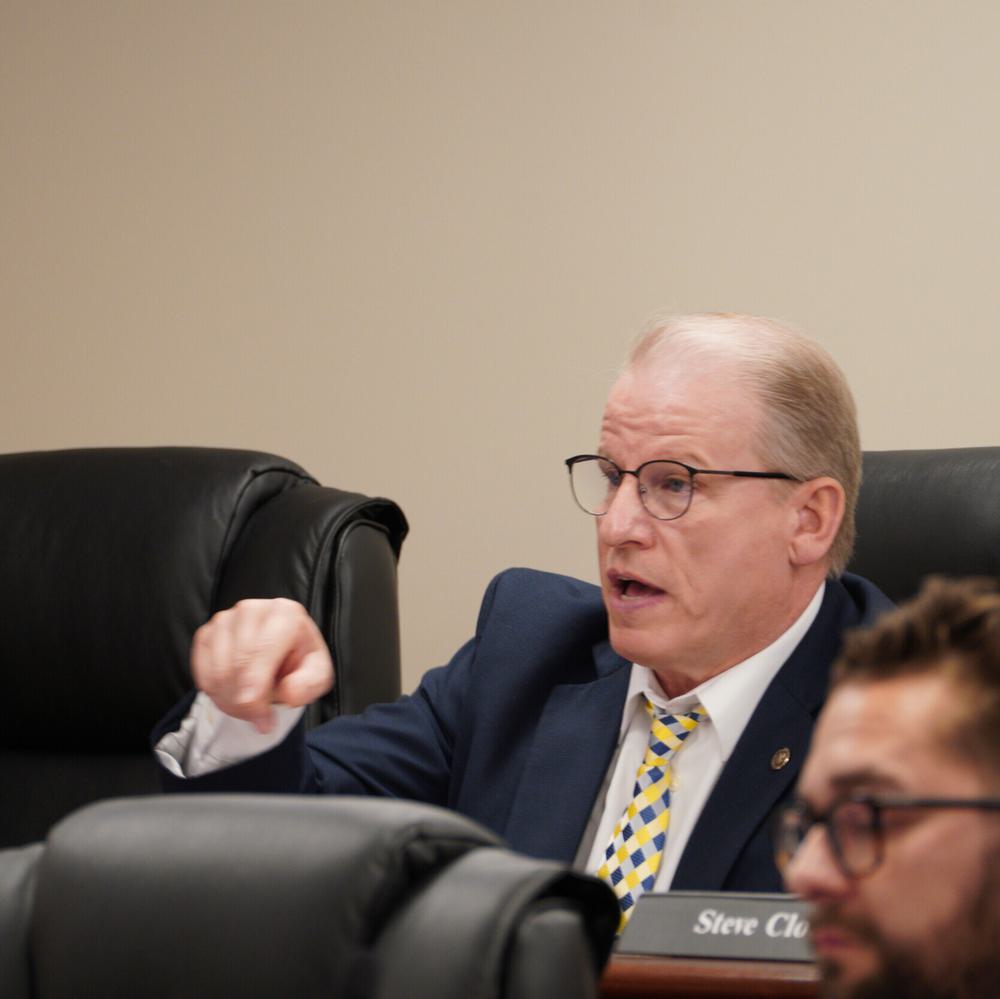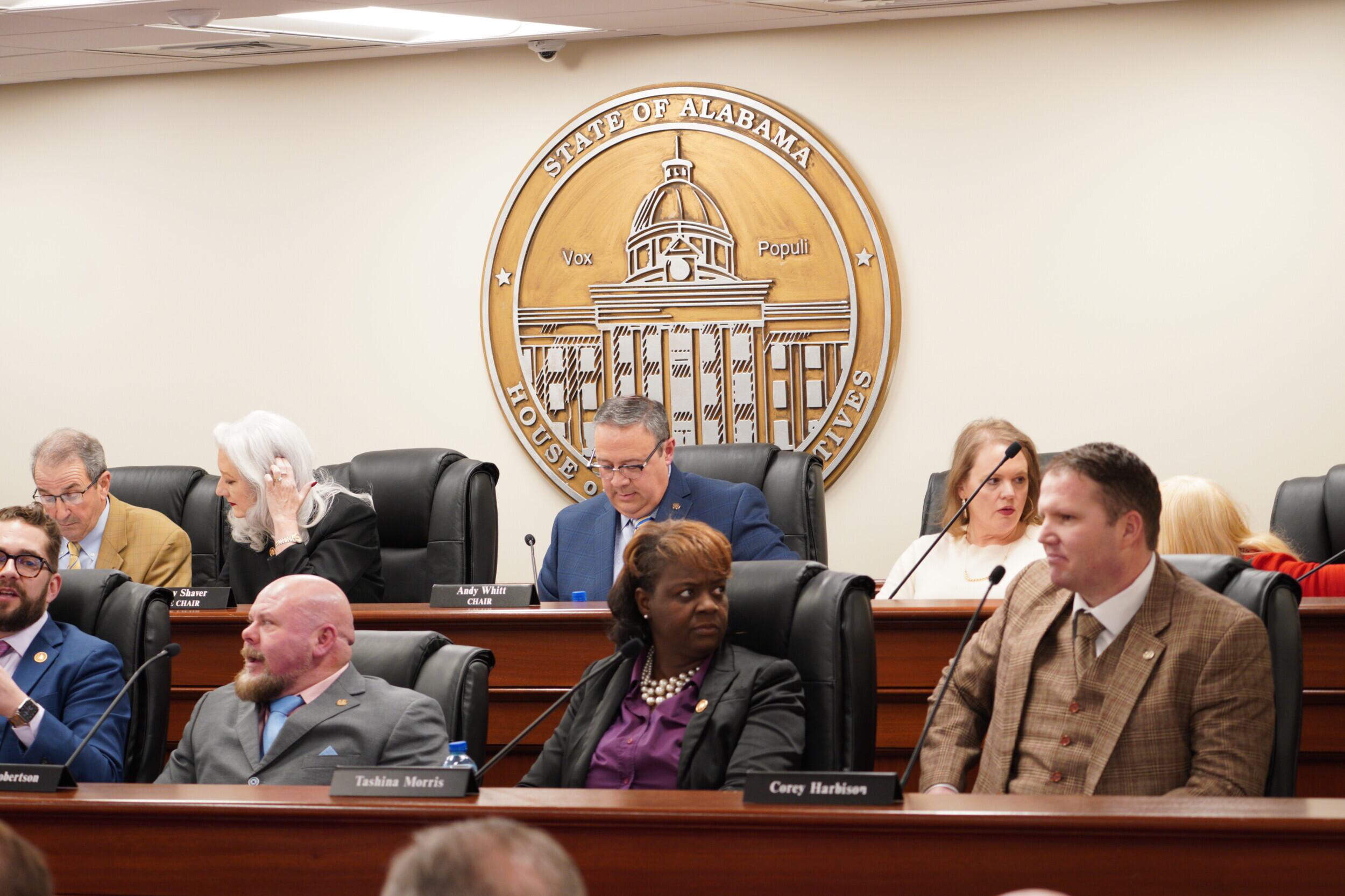MONTGOMERY — The set of bills legalizing comprehensive gambling in Alabama passed out of committee Wednesday with one vote opposed a day before they're slated to hit the House of Representatives for a floor vote.
The House Economic Development and Tourism Committee met on Wednesday for the second time this week to hold a formal vote on the proposed gambling legislation.
State Rep. Chris Blackshear (R-Phenix City), who is sponsoring the two bills needed to establish gambling, presented both before a packed committee meeting on Tuesday.
One bill, House Bill 151 (HB151), will repeal all constitutional amendments allowing gambling in certain parts of the state and remove the state’s constitutional gambling prohibition. The other, House Bill 152 (HB152), authorizes a series of provisions legalizing casino gaming in specific locations, a statewide lottery and online sports betting.
Blackshear answered members' questions during the Wednesday meeting and accepted several amendments to both bills.
State Rep. Allen Treadaway (R-Morris) took umbrage with several sections in HB152, suggesting intent to file some amendments when the bill hits the House floor on Thursday.
One section of the proposed legislation would allow some gambling operations to continue operating until 2027 so long as they meet specific requirements.
“For over a year, I have worked very hard to shut them down in Jefferson County,” Treadaway said. “We’ve made great strides in doing that. I do not want to see somebody being rewarded for operating an illegal establishment. Some have cranked back up because they have seen this piece of legislation that allows, they think, that will give them two [more] years.”

Blackshear responded by saying that applicable facilities would likely not want to divulge the information required by the bill’s provisions, and the gaming commission would probably weed out bad actors.
Treadaway also took issue with the proposed requirements for the bidding process.
The licensing will be limited to specific counties in the state, including three already-existing locations operated by the Poarch Band of Creek Indians (PCI) on their federal tribal lands.
The locations are Birmingham and Macon, Greene, Lowndes, Houston and Mobile Counties, all of which already have high-profile gambling establishments.
Although Blackshear said no one local facility was guaranteed a license, other language led Treadaway to suggest the bill would give preferential treatment to in-state operators in those areas that already have gambling facilities.
According to the bill, the gaming commission would take 11 total aspects into account when selecting which establishment to grant a license. Including (2) the applicant's existing or past investments in the relevant local jurisdiction and the state, (5) the applicant's familiarity with the local market, and (6) the applicant's ties to, and community support within, the State of Alabama and the jurisdiction of the proposed gaming establishment.
“If somebody came into any of those locations to honestly bid, number two, number five, and number six seems to be selecting a local individual to win the bid, even if I had half a billion dollars on the table for that location,” Treadaway said.
“That area gives me great concern. I think the state, if we’re going to do this, can have a windfall of money to take care of a lot of issues here, just on the license,” he continued.
Blackshear responded that they would have to “agree to disagree” and that three out of 11 qualifications do not make any local operator a shoo-in for a license.
State Rep. Chip Brown (R-Hollinger's Island) offered amendments to both bills during the meeting, all of which were approved. HB151 cleared up jurisdictional language and allowed the legislature to grant jurisdiction to any court to hear cases concerning gaming.
For HB152, Brown’s amendment removed several sections that initially prohibited certain employees with the commission from having more than 1% of a financial interest in any gambling establishment under the commission’s purview. The amendment ensures that these employees cannot have any financial interest in any such endeavor.
Additionally, the bill initially said that if no license was granted in Houston and Lowndes counties within five years, the gaming commission could give those licenses to other areas. Some saw this as a loophole that could transfer those licenses to other parts of the state.
See: High stakes game: Lawmakers eyeballing loopholes that could bring casino to Baldwin County
After the amendment, Blackshear said the only fluctuating license would not be the Northeast compact with PCI. The PCI location has yet to be established. However, the bill states it must be “wholly located north of U.S. Route 411 and that borders the State of Georgia, or a municipality within such a county.”
Other amendments clarified the extent of gaming revenue that would go to local sheriffs and what taxes applied to gaming facilities.
State Rep. Neil Rafferty (D-Birmingham) also inquired why the state could not push a “simple lottery bill” instead of the comprehensive proposal.
“I chuckle when you use the word ‘simple,’ with all due respect,” Blackshear retorted. “It’s not simple, and that’s part of the problem, in my opinion. Passing just a simple lottery, in my opinion, only muddies the waters even more than they already are.”
Blackshear went on to explain that a simple lottery bill would not do near enough to address the ubiquity of illegal gambling operations in the state, which would allegedly be snuffed out by the enforcement division and prosecutorial discretion created in HB152.
“It’s always been my belief that a holistic approach is the only way we’re ever going to be able to tackle it and make a lottery part of that very convoluted and difficult process,” he concluded.
Ultimately, both bills passed the committee with Treadaway as the only "no" vote. The bills are slated to hit the House floor tomorrow for deliberation.
To connect with the author of this story or to comment, email craig.monger@1819news.com.
Don't miss out! Subscribe to our newsletter and get our top stories every weekday morning.










